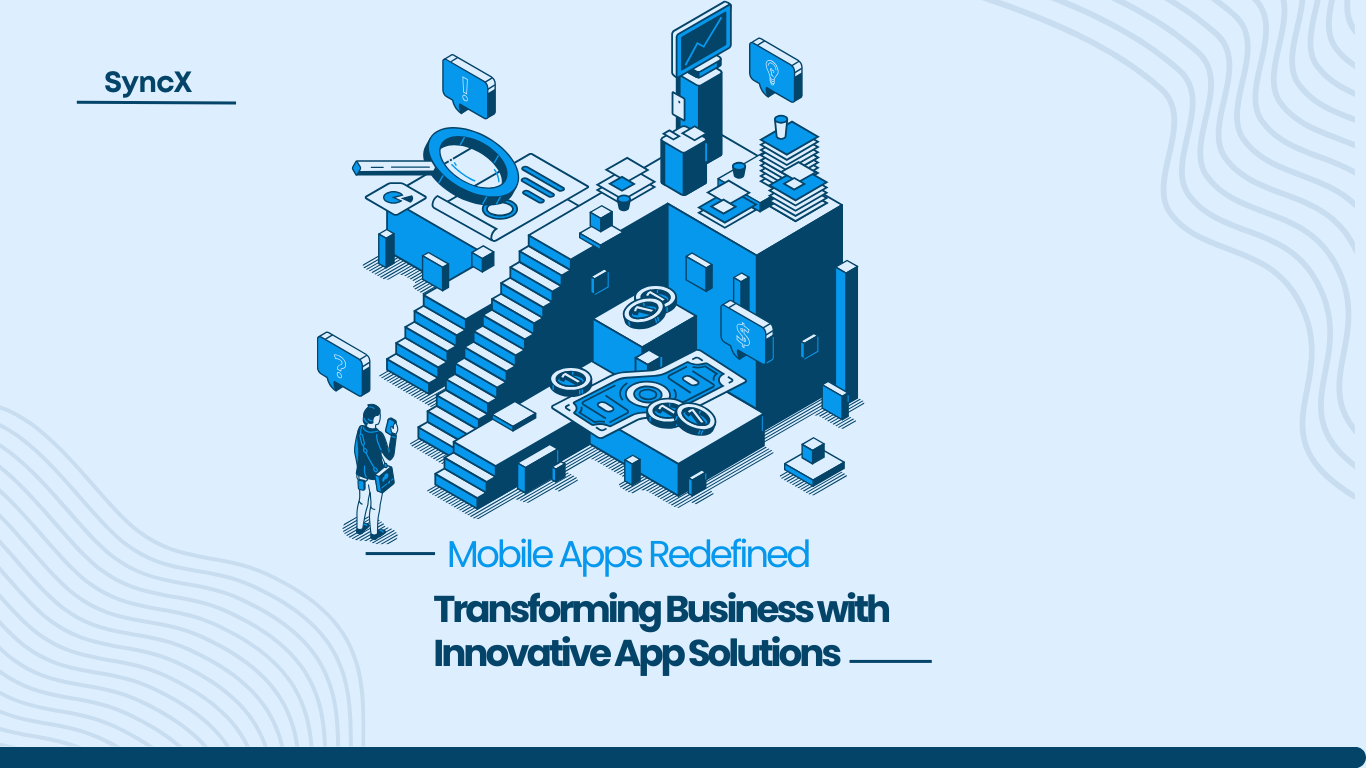
In today’s fast-paced digital world, mobile apps have emerged as a powerful force behind business growth, innovation, and transformation. With smartphone usage at an all-time high, businesses are rethinking their strategies to stay relevant—and mobile apps are right at the heart of this evolution.
From improving customer experiences to streamlining internal workflows, let’s explore how mobile apps are reshaping the way companies operate and why investing in mobile development has become a smart move.
The Rise of Mobile Apps in Business
Over 80% of the global population owns a smartphone, making mobile apps a direct and highly effective way to engage customers. Whether you’re a startup or a multinational company, having a dedicated app puts your brand right in your customer’s pocket.
Apps go beyond just being functional tools—they’ve become platforms where businesses can build loyalty, offer real-time support, and deliver seamless services.
1. Enhancing Customer Engagement
One of the most significant advantages of mobile apps is the ability to communicate with users instantly. With features like:
Push notifications
In-app messaging
Tailored content
…businesses can maintain meaningful conversations with their customers. Apps enable brands to deliver personalized experiences that keep users coming back, building a loyal community around your brand.
2. Streamlining Operations
Mobile apps aren’t just for customers—they’re game-changers for internal processes too. From managing teams to automating routine tasks, apps can:
Improve team collaboration
Centralize data and workflows
Boost productivity through real-time updates
Whether it’s sales tracking or project management, mobile tools empower businesses to operate more efficiently and reduce operational clutter.
3. Driving Smarter Decisions With Data
Modern mobile apps can track user behavior, preferences, and engagement. This data helps businesses:
Understand their audience better
Make informed decisions
Customize their marketing efforts
The ability to analyze what users love—and what they don’t—gives you a roadmap for continuous improvement.
4. Expanding Market Reach
Unlike physical stores, mobile apps remove location barriers. Businesses can now:
Reach global customers
Operate 24/7
Offer services without depending on physical presence
This not only increases brand visibility but also opens up new revenue streams, especially with in-app purchases and e-commerce features.
5. Personalizing User Experience
Customers expect personalization—and apps deliver it perfectly. From tailored offers to content suggestions based on browsing history, apps can adapt in real time.
This kind of personalization leads to:
Higher user satisfaction
Increased retention rates
More conversions
The better the experience, the stronger the relationship between the brand and its customers.
6. Gaining a Competitive Edge
In a crowded digital space, a well-crafted mobile app can make your business stand out. By offering features your competitors don’t—or providing a smoother, more intuitive experience—you instantly gain an advantage.
Brands that invest in app innovation can react quickly to market trends and customer demands, keeping them ahead of the curve.
7. Reducing Costs in the Long Run
Although mobile app development can seem costly upfront, it often reduces long-term expenses by:
Automating customer service
Lowering marketing costs through direct user channels
Decreasing reliance on third-party platforms
Ultimately, apps simplify your business ecosystem while improving ROI.
Final Thoughts
Mobile apps are no longer just a “nice to have”—they are a strategic necessity. In an era where digital interactions dominate, mobile apps empower businesses to be faster, smarter, and more customer-centric.
Whether you want to boost engagement, improve operations, or scale globally, investing in mobile development gives your business the tools it needs to grow and thrive.
So, are you ready to transform your business with a mobile-first mindset? The future is mobile—and it starts now.

